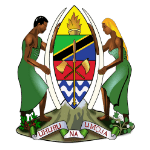Background
The Tanzania’s Ministry of Health developed the country’s Malaria scorecard management tool in 2016 under the leadership of the National Malaria Control Programme (NMCP) and with the support of ALMA and partners. Due to challenges with DHIS2 data availability, scorecard production was interrupted in 2017.
In 2018, scorecard production resumed with support from ALMA and the University of Dar es Salaam’s (UDSM) DHIS2 team. Priority indicators were configured on the national DHIS2 HMIS and the scorecard web platform was linked to DHIS2 through UDSM’s DHIS2 scorecard app. In 2019, the scorecard was officially launched by the Ministry of Health during an event to commemorate Southern African Development Community (SADC)’s Malaria Day, an event which also saw the launch of Zero Malaria Starts with Me in Tanzania.
In 2020, with the support of ALMA and the Comic Relief GSK Partnership, an app for mobile phones and tablets that allows for even easier access to scorecards was developed and 60 members of Parliament were trained on the use of the app. The scorecard was also decentralised in the five regions of Tanzania with highest malaria burden: Mtwara, Lindi, Geita, Kagera, and Kigoma. In each region, workshops were organised with regional and district level health management teams, high-level decision makers, as well as local partners, on how to access the scorecard and analyse the data with the ultimate goal of catalysing action.
How it works
The scorecard is produced every quarter using DHIS2 data which includes health facility level data, allowing for more targeted bottleneck analysis and action. It is broadly disseminated to stakeholders including partners, who have been trained on the tool and regularly access the data. To minimize obstacles in scorecard interpretation, the scorecard and all training material and indicator guides have been translated into Swahili.
Impact
Service delivery improvements
In Geita region, a high burden region, the scorecard analysis showed a decline in Long-lasting insecticidal net (LLIN) distribution through routine antenatal care appointments (ANC) and for Under-1s through immunisation. Bottleneck analysis revealed that there was a delay in procurement and distribution of LLINs during the transition and the region urgently communicated with the responsible partner to ensure adequate stock of LLINs were mobilised to health facilities. ANC LLIN distribution increased from 64% in Q4 2019 to 97% in Q1 2020. LLIN coverage for infants increased from 72% in Q4 2019 to 87% in Q1 2020.
Key success factors
Decentralised to regional level
All regional malaria focal points have been trained on the scorecard management tool. This allows the implementers on the ground, who own the data, to more closely monitor the outcomes of their activities.
Parliamentary engagement
60 members of parliament were trained on the use of the mobile app, and the parliament IT department was also trained on the use of the app to enhance data-driven advocacy. After the training, it was noted that several members of parliament made references to the need to sustain malaria efforts in speeches in parliament.
High level engagement around the scorecard
All mainland regional focal points have been trained on the malaria scorecard and 5 high burden regions have decentralised down to district level – in all of their districts. This allows the implementers on the ground, who own the data, to more closely monitor the outcomes of their activities.
Use of the app
As the first country to rollout the app, Tanzania is leading an innovative approach to accessing scorecards.
Partners engaged in supporting the scorecard
- World Health Organization (WHO)
- US President’s Malaria Initiative (PMI)
- Clinton Health Access Initiative (CHAI)
- GSK / Comic Relief
